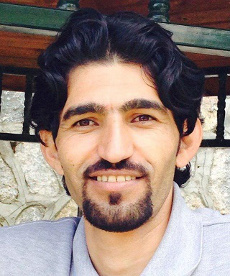Iran Lawyers’ Union Head: End Capital Punishment For Drug Crimes
Bahman Keshavarz, president of Iran’s General Union of Lawyer Associations, has expressed serious criticism of the country’s continued use of capital punishment for drug offenders. In a conversation with Ana News Service, the legal expert recommended replacing the death penalty with sentences such as long-term incarceration and parole. Keshavarz remarked that the country’s minor drug offenders “are not criminals, but rather victims, for whom such a substitution might be positively evaluated.”
 Refuting an argument popular among death penalty proponents, Keshavarz stated: “It’s an established fact that severity of punishment and capital punishment do not, in the long- and mid-term, deter different sorts of crime, and drug crimes are no exception to this rule.”
Refuting an argument popular among death penalty proponents, Keshavarz stated: “It’s an established fact that severity of punishment and capital punishment do not, in the long- and mid-term, deter different sorts of crime, and drug crimes are no exception to this rule.”
The Lawyer’s Union head also emphasized the uniquely final nature of capital punishment, pointing out that the death penalty, once enforced, leaves no room for reevaluation or restitution. Keshavarz emphasized that the prospect of innocent life being taken in the course of an imperfect, error-prone legal process cannot be overlooked: “The danger always exists that a mistake in prosecution or sentencing, or inadequate or erroneous actions on the part of officers who [find the drugs] or judiciary officials, might ultimately result in the taking of a life which can never be made up for.” Here he cited instances of defendants put to death in rape cases who were later exonerated by DNA evidence.
Keshavarz grouped those involved in armed smuggling activities into two classes: “obligate addicts” under the influence of bosses and “those with a personal motive or enthusiasm for moving and distributing drugs while armed.” According to Keshavarz, it is those in the second group who go on to become major traffickers, and the two groups out to be sentenced accordingly.
The legal professional’s comments come at a time when the Iranian Majles has voted to fast-track a provision which, if passed, would give judges alternative sentencing options in cases of unarmed drug trafficking. Of some 8,000 executions which Abdorrahman Boroumand Foundation has documented in Iran since the year 2000, more than half have involved defendants charged with drug crimes.
Read Azad News Agency’s original Persian coverage:
http://www.ana.ir/news/167475





 My Interrogator Said: You Are An Ass, And Asses Do Not Merit Human Rights
My Interrogator Said: You Are An Ass, And Asses Do Not Merit Human Rights